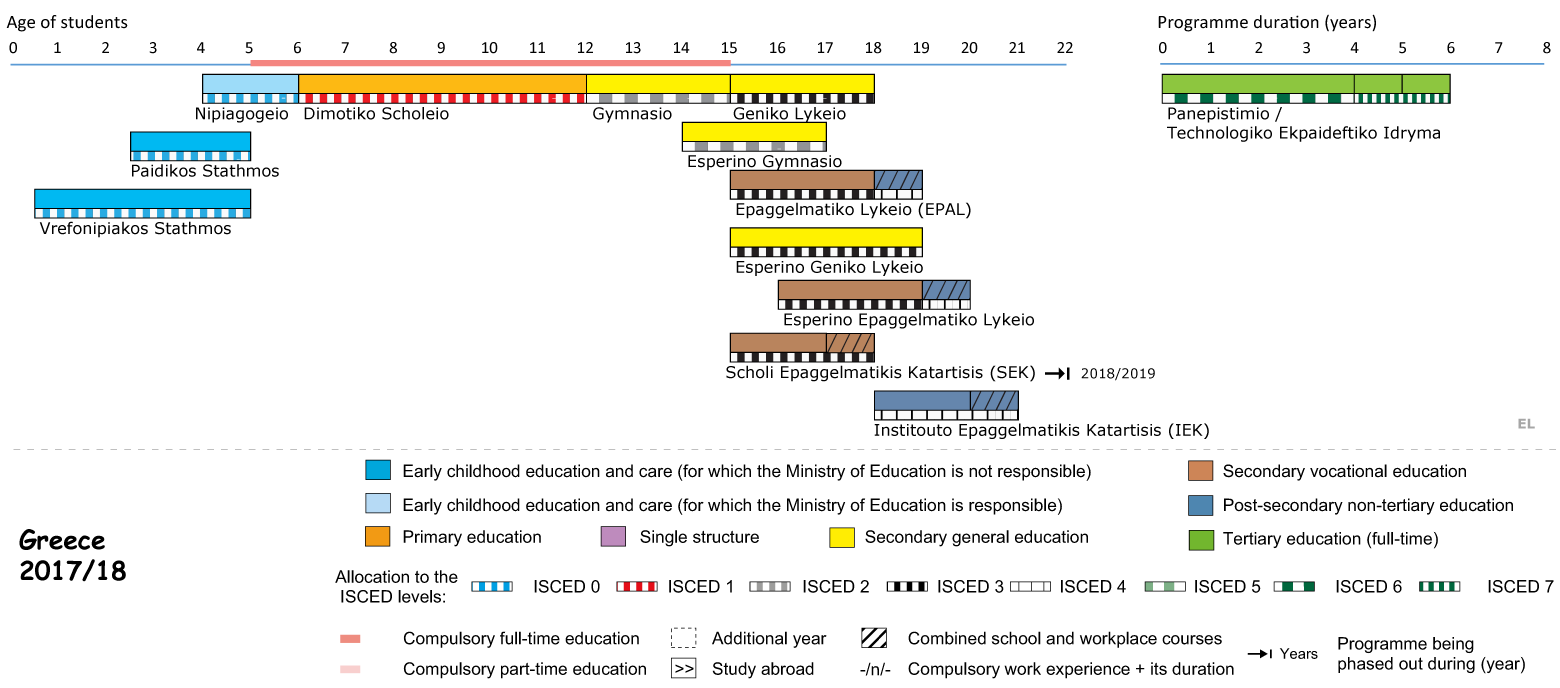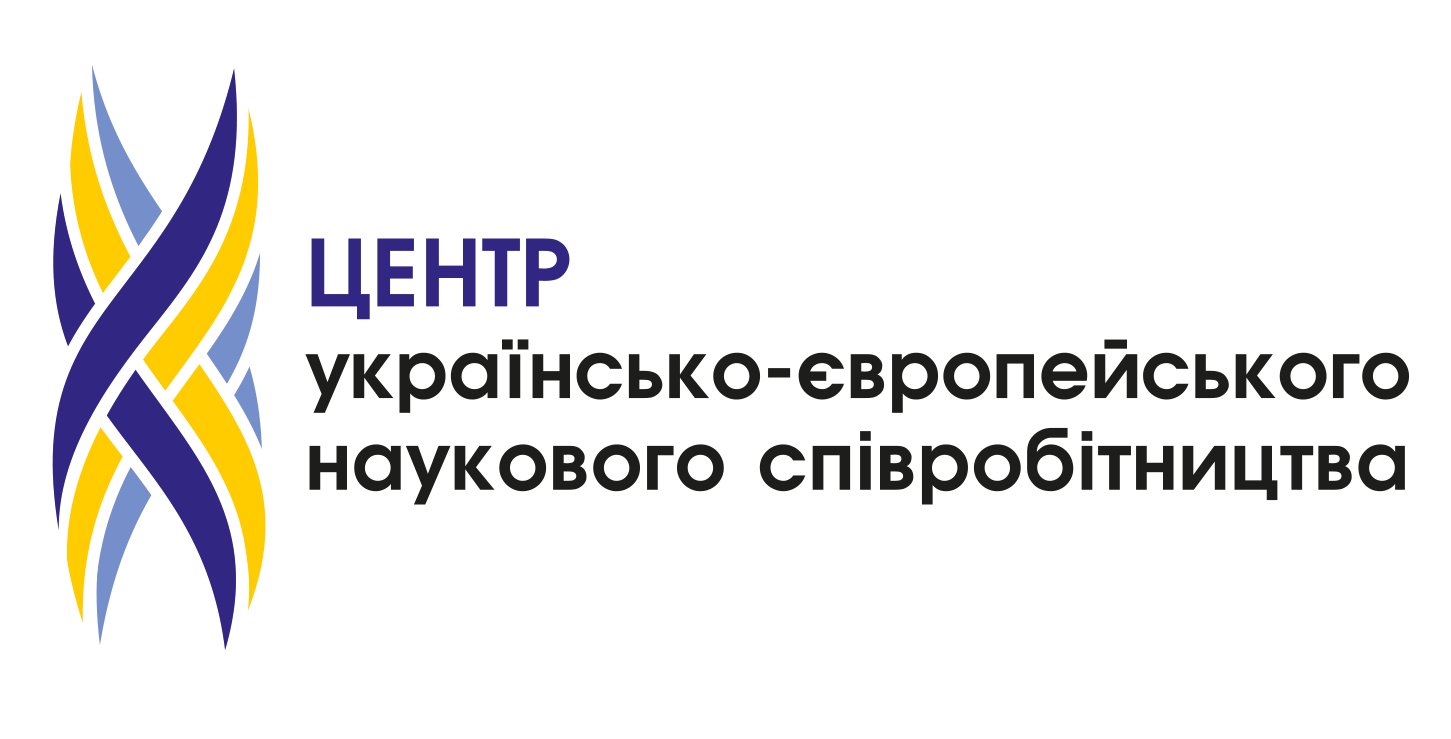 Key features of the Education System
Key features of the Education System
The provision of free education to all citizens and at all levels of the state education system is a constitutional principle of the Greek State.
The Greek educational system is centralised. National laws, presidential decrees and ministerial acts are prevalent within it.
Central Level
The central administrative agency for the education system across all fields, agencies and levels is the Ministry of Education, Research and Religious Affairs.
It takes the key decisions related to long-term objectives. It also regulates various issues, such as curricula content, staff recruitment and funding.
Regional and Local Levels
At regional level, the Regional Education Directorates oversee the implementation of the national educational policy.
At local level, the Directorates of Primary and Secondary Education supervise all schools in their area. In their turn, school units make sure they run smoothly.
Teachers
Educational officials of the country are Higher Education graduates.
The main route into teaching in primary schools is to take a 4-year degree in a pedagogical department.
In secondary schools, most teachers follow a 4 or 5-year subject-based degree at a teacher education faculty.
Stages of the Education System
Compulsory education in Greece lasts 11 years and extends from the ages of 4 to 15. The stages of the Greek education are mainly three:
Primary Education
Primary Εducation includes Pre-primary and Primary schools.
Pre-primary School
Pre-primary Εducation in Greece has become compulsory for all 4-year-old children, since school year 2018-2019. Over the span of 3 years, the two-year pre-school education will become compulsory in all municipalities of the country and children will enrol in Pre-primary Schools (Nipiagogeia) at the age of 4.
Infant Centres (Vrefikoi Stathmoi), Infant/Child Centres (Vrefonipiakoi Stathmoi) and Child Centres (Paidikoi Stathmoi) represent early childhood care. They are run under the remit of the Municipal Authorities. They cater for children between the ages of 2 months and up to 4 years old.
Primary School
Primary Education is the next stage. Primary School (Dimotiko Scholeio) spans 6 years. It concerns children in the age range of 6-12 years.
Since school year 2016-2017, there is a Single Type of All-day Primary School with a new revised daily timetable.
Secondary Education
Secondary Education includes two cycles of study:
Lower Secondary School
The first one is compulsory and corresponds to Lower Secondary School (Gymnasio).
- It lasts 3 years
- It provides general education
- It covers ages 12-15
- It is a prerequisite for enrolling at General or Vocational Upper Secondary Schools
- Parallel to Day Gymnasio, Evening (Esperino) Gymnasio operates. Attendance starts at the age of 14.
Upper Secondary School
The second one is the optional General or Vocational Upper Secondary School (Geniko or Epaggelmatiko Lykeio).
- It lasts 3 years
- Pupils enrol at the age of 15
- There are two different types:
a. General (Geniko) Lykeio. It lasts three years and includes both common core subjects and optional subjects of specialisation
b. Vocational (Epaggelmatiko) Lykeio. It offers two cycles of studies:
i. The secondary cycle
ii. The optional post-secondary cycle, the so-called “Apprenticeship Class”. - Parallel to day Lykeia, there are 4-year Lykeia:
a. Evening General (Esperina Genika)
b. Evening Vocational (Esperina Epaggelmatika). The minimum age for enrolment is the age of 16.
Tertiary Education
Higher education is the last level of the formal education system. Most undergraduate degree programmes take 4 academic years of full-time study.
Postgraduate courses last from one to two years, while doctorates at least 3 years.
HE comprises:
The University Sector (Panepistimio)
- Universities
- Polytechnics
- The School of Fine Arts.
The Technological sector
- Technological Education Institutions (Technologika Ekpaideftika Idrymata)
- The School of Pedagogical and Technological Education (ASPETE).
Lifelong Learning
Lifelong Learning policy in Greece is part of a wider development plan. The General Secretariat for Lifelong Learning and the General Secretariat for Youth plans the public policy of LLL. Non-formal education can lead to certifications recognised at national level. Lifelong Learning is provided at:
- Vocational Training Institutes (Institouta Epaggelmatikis Katartisis)
- Lifelong Learning Centers (Kentra Dia Viou Mathisis)
- Vocational Training Schools (Scholes Epaggelmatikis Katartisis)
- Colleges (Kollegia).
Structure of the National Education System
Resource: https://eacea.ec.europa.eu/national-policies/eurydice/content/greece_en









